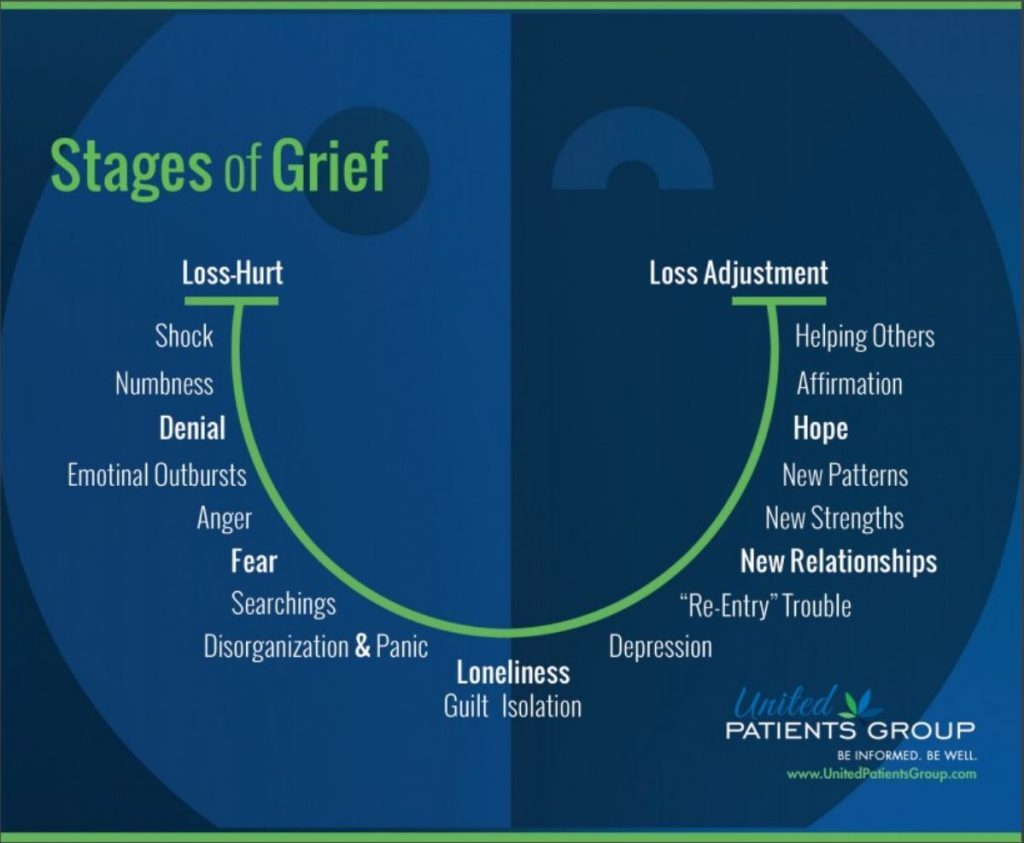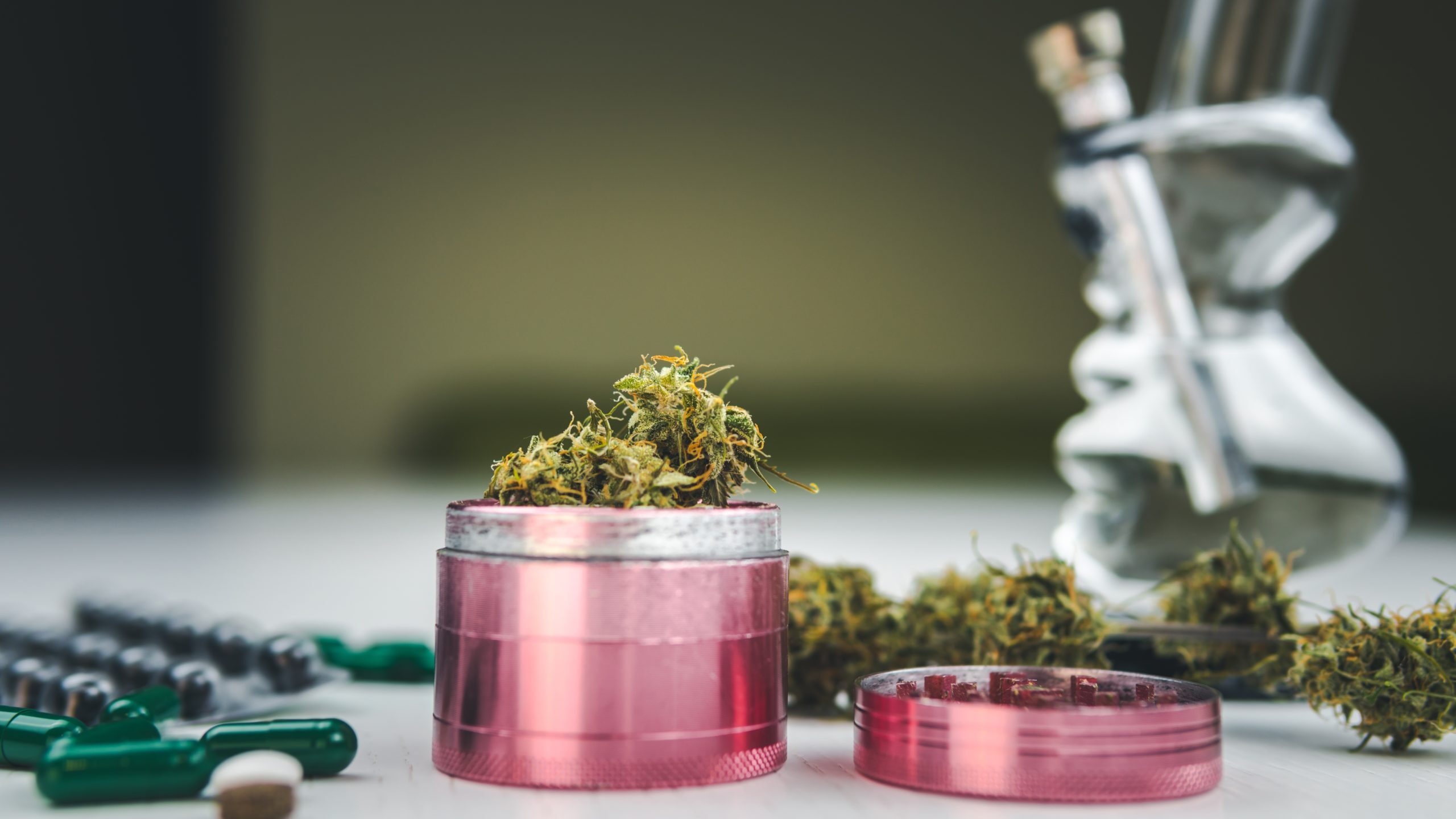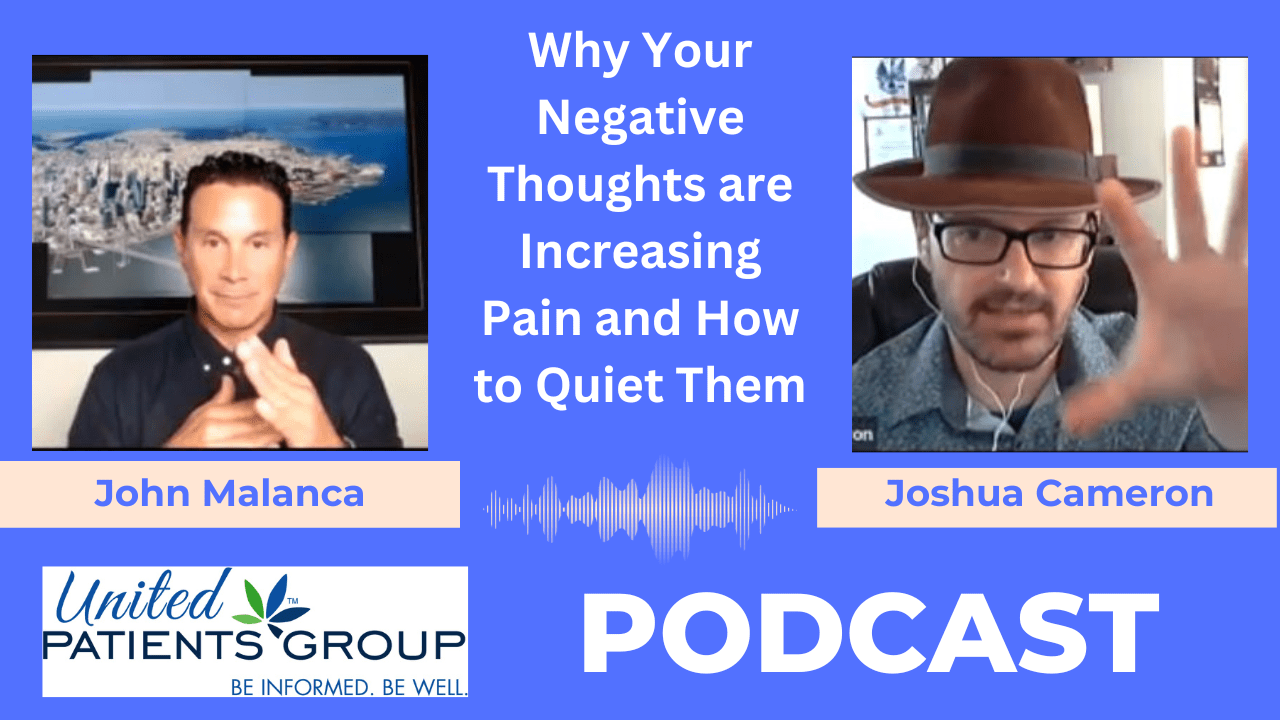Article Topics
Introduction
Grief is a natural and healthy response to loss. It allows us to process our emotions in a healthy way and understand that the person we lost will always be a part of our lives. However, grief can also be overwhelming for many people. In fact, it’s estimated that 3 out of 4 people experience symptoms of PTSD following the death of a loved one. It’s important to remember that there are many ways to cope with grief, including using natural substances such as cannabis.
What is grief?
Grief is a normal response to loss. It can feel like you’re in a fog, or like your heart has been ripped out of your chest, but it’s not a sign of weakness or something to be ashamed of. Grief is also not something that goes away overnight–it’s an ongoing process that may last for months or even years.
Some people talk about grief as being “in stages,” which can make it seem like there are steps we need to go through before we get better (or worse). But this isn’t really accurate; everyone experiences their own unique combination of emotions at different times during the grieving process, and some people don’t experience any or all stages at all!
There are many different types of grief: anticipatory loss (when someone knows they will soon die); traumatic death (death by accident/murder); sudden death; delayed shock reaction following traumatic events such as earthquakes or bombings; survivor guilt after losing someone close who died while trying to save others.
How can cannabis help with grief?
The endocannabinoid system is a network of receptors located throughout the body. It’s responsible for managing many of our physiological processes, including mood and anxiety levels. When you consume cannabis, it activates these receptors to produce feelings of euphoria and relaxation.
The best way to use cannabis for grieving is by respecting the process itself: allowing yourself time alone with your thoughts, taking breaks from socializing if necessary, listening carefully to what others say (or don’t say), and being patient with yourself as you grieve.
Who should consider using cannabis to grieve?
If you’re grieving the loss of a loved one, it’s understandable to feel like nothing will ever be the same again. You might have trouble sleeping and eating, or even remembering what it feels like not to hurt so much. It’s normal for grief to last for months or even years–and if you’re dealing with multiple losses in quick succession (like losing your job and then losing your home), those feelings might intensify even more quickly.
So whether your loved ones died recently or decades ago, cannabis could potentially help alleviate some of your pain by helping you sleep better at night and relax during the day; reducing physical aches caused by stress; relieving tension headaches; providing relief from nausea associated with chemotherapy treatment; improving appetite during chemotherapy sessions; reducing anxiety levels associated with anxiety disorders such as PTSD (post-traumatic stress disorder) or OCD (obsessive compulsive disorder); decreasing depression symptoms related to bipolar disorder.
How do you start using cannabis to cope with grief?
If you are interested in using cannabis to cope with grief, there are a few things to keep in mind:
- Start small. Start with a low dose and see how it affects you. If the effects are not what you expected or if they aren’t helpful, try again with a smaller dose. It’s better to take smaller amounts than more than needed so that you don’t feel uncomfortable or get too high (which can be overwhelming).
- Experiment with different strains and methods of ingestion (smoking vs vaping vs edibles). Different strains have different effects on mood and physical sensations such as pain relief or relaxation; also consider whether smoking/vaping will be best for your needs versus eating an edible product which may take longer but produce longer lasting results once consumed.*
- If possible access medical cannabis through your doctor or healthcare provider if needed because some people may need higher doses than others depending on their condition(s).
Cannabis can help us process the emotions of grief and loss, but it may not be the best choice for everyone.
Cannabis can help us process the emotions of grief and loss, but it may not be the best choice for everyone.
Cannabis is not a cure for grief, but it can help us process the emotions of grief and loss. It can also improve our overall well-being by helping us sleep better and reducing anxiety or stress.
How can cannabis help with grief?
Cannabis can help with grief by reducing stress and anxiety, calming the mind and helping you sleep better.
Since grief is such a stressful time in your life, it’s natural to feel anxious or worried about what will happen next. Some people even experience panic attacks during this time. Cannabis has been shown to reduce feelings of stress and anxiety by relaxing muscles in the body while also stimulating appetite which helps relieve nausea that may come along with grief.
Cannabis has been used for thousands of years as an antidepressant because it has been shown to increase levels of serotonin–a neurotransmitter responsible for happiness–in the brain by increasing blood flow through 5HT1A receptors located throughout our brains’ limbic system (the area responsible for emotion). This means consuming cannabis can help improve moods as well as alleviate feelings of depression associated with grieving over lost loved ones or friends who’ve passed away from illness or old age.
1. Activating the Endocannabinoid System
The endocannabinoid system (ECS) is a biological system that regulates a variety of functions in the body. The ECS is involved in mood, sleep, appetite and memory.
Cannabinoids are substances found in cannabis plants that can affect the ECS. When you consume marijuana or other forms of THC (which stands for delta-9-tetrahydrocannabinol), it activates receptors on cells throughout your body called cannabinoid receptors. These receptors play an important role in regulating how you feel by affecting things like pain sensation and nausea relief as well as emotional responses like happiness or anxiety.
2. Respecting the process of grieving
The process of grieving is an emotional one, and cannabis can help you navigate it.
Cannabis can be used to treat the physical symptoms of grief and loss, including:
- Body aches and pains
- Headaches
- Irritability or anxiety
3. Reducing stress and anxiety by calming the mind
If you’re dealing with grief, it can be difficult to find ways to relax and calm down. Cannabis can help you achieve this by reducing stress and anxiety, which can often lead to feelings of sadness or depression. If you are having trouble sleeping because of your emotions, cannabis may also help you sleep better at night.
You might benefit from using cannabis if:
- You are struggling with coping mechanisms due to grief (i.e., drinking alcohol or smoking cigarettes)
- You feel overwhelmed by negative thoughts or memories related to your loved one’s death
4. Decreasing symptoms of depression, including suicidal thoughts
Depression is a common symptom of grief and can make it harder to cope with the loss. Cannabis has been shown to help with symptoms of depression, including suicidal thoughts.
Suicidal ideation (SI) refers to thoughts about suicide and is an important predictor for future suicide attempts or completions. It can occur even without previous history of mental health issues such as anxiety or depression; however, people who experience SI are at higher risk for developing these problems later on due to their exposure during periods when they are most vulnerable.
5. Helping you sleep better and wake up feeling better
Cannabis can help with sleep, and it’s no surprise that this is one of the most common ways to use cannabis as a coping mechanism. Many people find that they are able to fall asleep faster when they take cannabis before bed. Others find that their sleep quality is improved after using cannabis, which means waking up feeling more rested and refreshed than usual.
In addition to helping you get a full night’s rest, some research suggests that medical marijuana may also be useful as an anti-anxiety treatment for those suffering from PTSD or chronic stress disorders such as generalized anxiety disorder (GAD).
Cannabis has been shown to help with a variety of symptoms that people experience as they grieve, while also respecting the process itself
Cannabis has been shown to help with a variety of symptoms that people experience as they grieve, while also respecting the process itself. In addition to helping you sleep better and wake up feeling better, cannabis can also reduce stress and anxiety by calming the mind.
Conclusion
Grieving is a process, and it’s important to respect that process. While cannabis can help us cope with grief, it should never be seen as a substitute for professional support or other forms of treatment. If you are experiencing any symptoms of depression or anxiety, please seek medical attention immediately and know…YOU are NOT alone.








































Leave a Reply Cancel reply